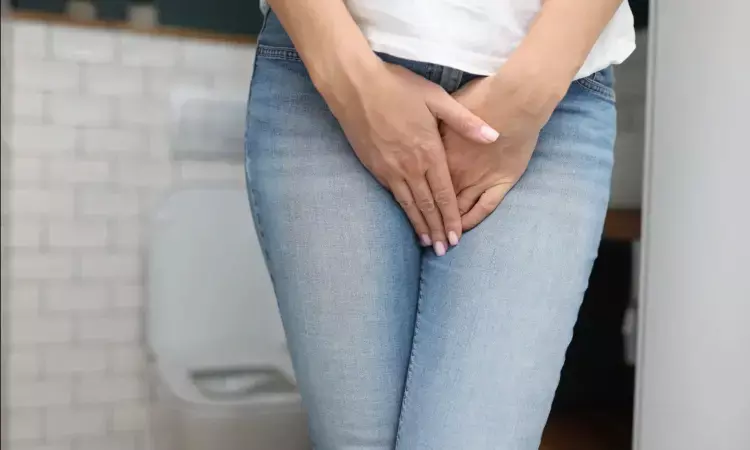- Home
- Medical news & Guidelines
- Anesthesiology
- Cardiology and CTVS
- Critical Care
- Dentistry
- Dermatology
- Diabetes and Endocrinology
- ENT
- Gastroenterology
- Medicine
- Nephrology
- Neurology
- Obstretics-Gynaecology
- Oncology
- Ophthalmology
- Orthopaedics
- Pediatrics-Neonatology
- Psychiatry
- Pulmonology
- Radiology
- Surgery
- Urology
- Laboratory Medicine
- Diet
- Nursing
- Paramedical
- Physiotherapy
- Health news
- Fact Check
- Bone Health Fact Check
- Brain Health Fact Check
- Cancer Related Fact Check
- Child Care Fact Check
- Dental and oral health fact check
- Diabetes and metabolic health fact check
- Diet and Nutrition Fact Check
- Eye and ENT Care Fact Check
- Fitness fact check
- Gut health fact check
- Heart health fact check
- Kidney health fact check
- Medical education fact check
- Men's health fact check
- Respiratory fact check
- Skin and hair care fact check
- Vaccine and Immunization fact check
- Women's health fact check
- AYUSH
- State News
- Andaman and Nicobar Islands
- Andhra Pradesh
- Arunachal Pradesh
- Assam
- Bihar
- Chandigarh
- Chattisgarh
- Dadra and Nagar Haveli
- Daman and Diu
- Delhi
- Goa
- Gujarat
- Haryana
- Himachal Pradesh
- Jammu & Kashmir
- Jharkhand
- Karnataka
- Kerala
- Ladakh
- Lakshadweep
- Madhya Pradesh
- Maharashtra
- Manipur
- Meghalaya
- Mizoram
- Nagaland
- Odisha
- Puducherry
- Punjab
- Rajasthan
- Sikkim
- Tamil Nadu
- Telangana
- Tripura
- Uttar Pradesh
- Uttrakhand
- West Bengal
- Medical Education
- Industry
Psychiatric Disorders Worsen Academic Outcomes in Children with Urinary Incontinence: Study

A new study published in The Journal of Urology found urinary incontinence alone to have a minimal impact on academic performance in children. However, those with co-existing psychiatric disorders (ADHD) showed significantly poorer academic outcomes.
It is common for kids younger than three to lack complete bladder control. Children grow better at controlling their bladders as they get older. Enuresis is the term used to describe wetness in children who are old enough to regulate their bladder. This can occur at any time of day or night. It might be frustrating to have enuresis which can occasionally affect a lot of kids. Some kids may need more time than others to learn how to manage their bladder. Therefore, this study by Brit Borg and team looked in to the relationship between children's UI and academic achievement.
This national matched cohort research examines the relationship between UI and scores on the 2010–2018 standardized National School Tests (1–100 points) for children born in Denmark to Danish parents between 1997 and 2008. After controlling for pertinent factors, multiple linear regression calculated the difference (∆) in test scores between children with UI and matched references. Subanalyses looked at the impact of age at treatment beginning and mental illnesses (PDs).
The matched reference children (n = 429,999; ∆ range −2.5 to +0.6 points) and children with UI (n = 42,999) behaved similarly. The attention-deficit/hyperactivity disorder score (∆ range −3.7 to −11.2 points) was significantly lower for children with UI co-occurring with PDs than for the reference cohort.
Overall school performance was poorer for children with nocturnal enuresis who were 11 years of age or older at the start of therapy than with those who were 5 to 7 years old (∆ −2.9 [95% CI, −4.0 to −1.7]).
The children with UI performed normally at school. Nonetheless, the research advises screening for PDs in UI as they are more common there and children with UI and co-occurring PDs performed noticeably worse in school. More study is required to determine the impact of delayed therapy on children with UI, as children who received treatment later than those who received treatment earlier performed worse academically.
Reference:
Borg, B., Trabjerg, B. B., Dreier, J. W., Rittig, S., Breinbjerg, A., Christensen, J., Juul, K., Thomsen, P. H., & Kamperis, K. (2025). Childhood functional urinary incontinence and school performance: A nationwide matched cohort study. The Journal of Urology, 214(1), 58–68. https://doi.org/10.1097/JU.0000000000004532
Neuroscience Masters graduate
Jacinthlyn Sylvia, a Neuroscience Master's graduate from Chennai has worked extensively in deciphering the neurobiology of cognition and motor control in aging. She also has spread-out exposure to Neurosurgery from her Bachelor’s. She is currently involved in active Neuro-Oncology research. She is an upcoming neuroscientist with a fiery passion for writing. Her news cover at Medical Dialogues feature recent discoveries and updates from the healthcare and biomedical research fields. She can be reached at editorial@medicaldialogues.in
Dr Kamal Kant Kohli-MBBS, DTCD- a chest specialist with more than 30 years of practice and a flair for writing clinical articles, Dr Kamal Kant Kohli joined Medical Dialogues as a Chief Editor of Medical News. Besides writing articles, as an editor, he proofreads and verifies all the medical content published on Medical Dialogues including those coming from journals, studies,medical conferences,guidelines etc. Email: drkohli@medicaldialogues.in. Contact no. 011-43720751


